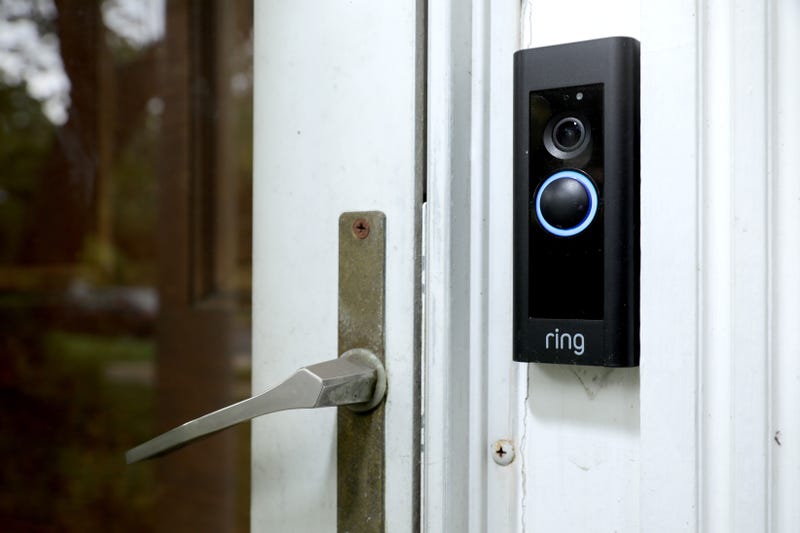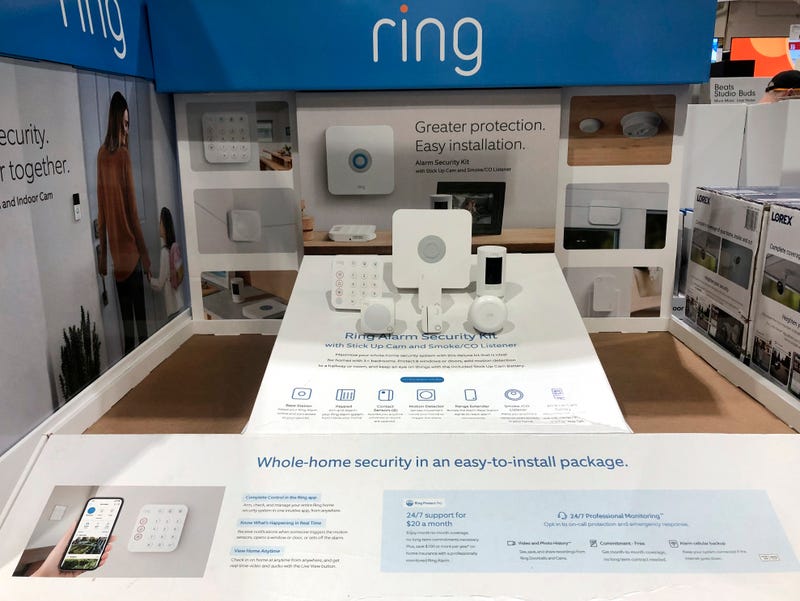
NEW YORK (1010 WINS) — The NYPD on Wednesday announced its plan to adopt Amazon’s Ring Neighbors app "that facilitates the interaction between law enforcement and the public" — but foes of the initiative say its an alarming invasion of privacy.
The app, which is marketed as a neighborhood watch service, allows police to access Ring doorbell camera footage posted by users and make requests for specific videos.
The department will roll out the collaboration over the course of the next week.
Once implemented, the app will allow cops to monitor anything posted by users, which will appear on a map and timeline along with accompanying pictures and videos.
Police will also be able to solicit Ring owner’s videos through a “Request for Assistance” feature.
"Request for Assistance posts are public posts, and were built to be limited in scope with strict parameters and policies in place that limit what police can request," a Ring spokesperson told 1010 WINS. "Police never have access to customer livestreams, and do not have access to customer information, device location, or videos unless a customer expressly chooses to share that information in response to a public Request for Assistance post."
The company also said users can opt out of seeing Request for Assistance posts.
"The ability to interact online with New Yorkers — often in real time — adds to the comprehensive crime-fighting strategies already employed by the NYPD in its relentless efforts to keep our city and everyone in it safe," said Police Commissioner Keechant Sewell. "True public safety is a shared responsibility, and this tool stands to further advance the collective work of our police and all the people we serve toward reaching that worthy ideal."
Privacy advocates raised concerns that the partnership could be abused by the department.
“The NYPD has never been a good neighbor to most New Yorkers, and this move will only put more people at risk,” Albert Fox Cahn, the executive director of the Surveillance Technology Oversight Project, told 1010 WINS. “This sort of crowdsourced surveillance will only lead to more wrongful arrests, racial profiling, and police violence. Most New Yorkers would second guess installing these home surveillance tools if they understood how easily these systems could be used against them and their families by police.”

Max Eliaser, a software engineer at Amazon, spoke out against the product for its potential to infringe on privacy rights.
“The deployment of connected home security cameras that allow footage to be queried centrally are simply not compatible with a free society,” said Eliaser. “The privacy issues are not fixable with regulation and there is no balance that can be struck. Ring should be shut down immediately and not brought back.”
On top of privacy concerns, it's dubious whether Ring and Neighbors have any impact on crime, according to at least two studies using publicly available municipal data.
Amazon claimed to have caused drastic decreases in crime in Los Angeles by installing Ring cameras, but the MIT Technology Review later found that districts in which the company carried out the tests saw increases in burglaries — the specific type of crime targeted by the cameras.
“Even if the doorbells had a positive effect, it seemed not to last,” the MIT research magazine wrote. “In 2017, Wilshire Park suffered more burglaries than in any of the previous seven years.”
A 2018 study carried out by West Valley City, Utah saw crime drop by more in its control group — the homes without Ring — than the homes that had cameras installed.
Amazon actively recruited local law enforcement agencies to install its mass surveillance system. Ring told 1010 WINS it discontinued the practice in 2019.
Neighbors had about 10 million users in September 2020 and, as of May 2021, about one in 10 US police precincts had joined the app.


